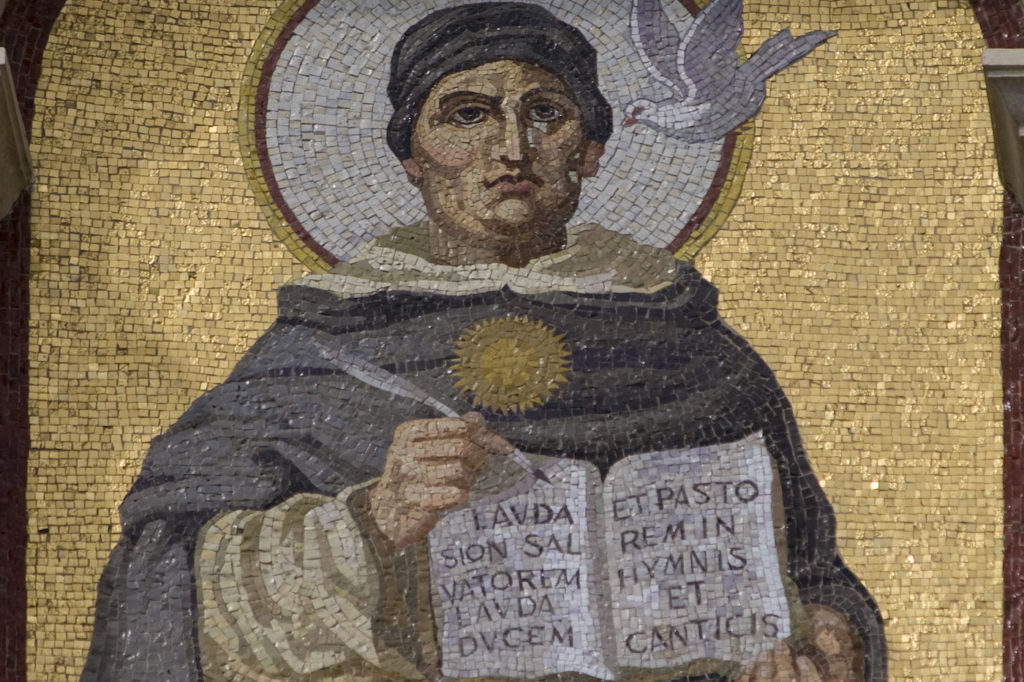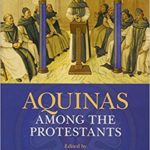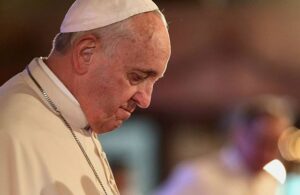This essay is part of our collection on common good economics. Read related pieces here.
The question of the just price has long vexed economists and ethicists alike. It has become more relevant as Catholics and other Christians evaluate the soundness of liberal democratic capitalism and consider potential alternatives to contemporary political, social, and economic arrangements. Unfortunately, St. Thomas Aquinas’s treatment of the question is often misunderstood by both Catholic integralists and classical liberals. These misunderstandings deprive us of lessons that could otherwise help us combine the goods of freedom and virtue as individuals and in society.
Integralists rightly read Thomas as subordinating economics to the virtuous life as practiced in community. The needs of the community for solidarity and piety take precedence over the production and consumption of goods and services, especially once the basic needs of society are met. But nowhere does Thomas condemn commerce or profit-making as such. The statesman or head of the household needs to have some awareness of how to achieve material well-being, even if it is not the highest of goods. In fact, it would be irresponsible to deny that basic needs of the community are much more easily met by the expansion of the division of labor and trade. Economic growth is too often taken for granted by non-economists.
Classical liberals, on the other hand, tend to dismiss the just price as a “myth” when it is anything other than the market price. Whatever price the buyer and seller freely agree upon in the absence of fraud is therefore the just price. They criticize the concept because it is often used to justify interventions in the marketplace by establishing price floors (such as minimum wages) and ceilings (such as rent control). The result is not only economic inefficiencies but shortages and surpluses created by the government in the name of justice.
So what does Thomas actually say about it?
Start your day with Public Discourse
Sign up and get our daily essays sent straight to your inbox.The Market Price and the Just Price
Thomas addresses the issue in the second part of the second part of the Summa Theologiae, Q. 77: “Of cheating, which is committed in buying and selling.” His primary concern is fraudulent rather than honest economic activity. Thomas is therefore not offering an economic analysis of how wealth is created or how prices are determined.
At the same time, Thomas criticizes the notion that buyers and sellers must be locked in some kind of perpetual conflict, continually trying to get the better of each other. He contrasts the Golden Rule—treating others as one would wish to be treated—with Roman civil law, which allows each side to deceive the other. Fraud occurs precisely because people are unable to see beyond their own interests as buyers or sellers. Note, however, that Thomas does not deny the existence of such interests, nor does he call them evil per se.
It is in the interest of buyers to seek the lowest price and of sellers to seek the highest price. Buyers and sellers negotiate and settle on a price agreeable to each side: the market price. For Thomas, then, the market price is the just price if the buyer and seller are honest and not trying to take advantage of each other. The ethical problem arises most commonly when there are dishonest participants, especially when the civil law allows or encourages such dishonesty.
A just price should reflect the worth or value of a good or service. How is such value determined? Usually quite subjectively, which is why haggling over prices takes place. Economists distinguish between value in use and value in exchange to explain why something useful but plentiful like water costs much less than something rare but useless like diamonds. (Economists are not particularly concerned with beauty!) They also distinguish between the total utility of all of one’s possessions and the marginal utility of an additional unit of a particular good, with the latter, not the former, determining what the buyer is willing to pay.
Thomas admits that the just price “is not fixed with mathematical precision but depends on a kind of estimate.” It varies over time and place, as market conditions vary. Despite the caricature of Scholastics who believe only in the “intrinsic worth” of goods, Thomas recognizes the concept of subjective value and the fact that prices reflect the diverse preferences of buyers and sellers.
Laws, Customs, and the Virtuous Life
It is, nevertheless, a mistake (as well as anachronistic) to identify Thomas as a classical liberal. Those responsible for the city or the household are also responsible for the provision of goods and services in the city or household, and cannot simply leave such provision to chance. The economy or marketplace does not exist prior to or outside the political community; there is no Thomistic pre-political “state of nature” as found in the writings of Thomas Hobbes and John Locke.
As a non-economist, Thomas understands the ethics of buying and selling as one part of a virtuous life. The laws and customs of a society can either help or hinder the pursuit of virtue. There can never be a “just price” between vicious people or for vicious actions. The moral character of the buyers and sellers is more important than the act of buying and selling itself.
There can never be a “just price” between vicious people or for vicious actions. The moral character of the buyers and sellers is more important than the act of buying and selling itself.
Unlike prices or values, virtues are not based on our subjective preferences or opinions about the good. All communities at least implicitly praise some actions and blame others, thereby shaping the character of their people. The just man in an unjust society will find it difficult, if not impossible, to engage in honest buying and selling.
Thomas is easily misunderstood (and easier to dismiss) when parts of his teachings are taken for the whole. Whatever he says about economics cannot be separated from what he says about the virtues, the nature of reality, and God. So the question of the just price is not simply a matter of economics or individual practices. At a minimum, it both requires a shared understanding of what constitutes fraudulent commerce, and carries sanctions against the latter. Honesty is not, however, the highest of virtues; honest commerce would also seem to require something more than “commutative justice” or justice between individuals.
Liberalism vs. Communitarianism
The two other parts of justice are the distributive and the general or legal. Distributive justice concerns what the community owes the individual; general or legal justice concerns what the individual owes the community. The communitarian nature of these forms of justice is what is most lacking in liberal societies that value individual freedom above all.
Not surprisingly, liberals find these communitarian aspects of justice most difficult to realize. We like to believe that we are responsible for ourselves, that we can choose the types of communities we wish to belong to, and that we can change our identities according to our preferences. More choice is always better, we think. In commercial societies, this economic way of thinking tends to extend to non-economic areas of life.
Conversely, modern communitarians are often reluctant to surrender liberal notions such as human rights and individual agency, perhaps most especially when it comes to religious questions. There would seem to be only a few alternatives to blood or soil when it comes to the basis of political solidarity, and religion is one of them. No reader of the Summa Theologiae can say that Thomas is indifferent to the content of religious belief and its relationship to social life.
When Politics, Economics, and Theology Collide
While Thomas leaves some room for subjective valuations of the just price and legitimate human freedom, it is a grave mistake to separate these from his larger concerns for man’s eternal destiny and supernatural end. God is the creator of all that is; God even created the material scarcity that makes economics and human interaction in the marketplace necessary for our well-being. God desires a certain kind of dependence among human beings rather than self-sufficiency.
What is the political and economic import of this theology? Following Aristotle, Thomas sees man as a political animal, one who can find his natural fulfillment only in community with others and with an ineradicable concern for justice. The virtuous man is just in all his dealings, including economic ones, giving to each his due and perhaps even more, but he cannot be virtuous on his own; he needs friends who also love virtue, good laws and customs, and, above all for Thomas, God’s grace. Yet no political or economic order will bring man lasting happiness, which comes only in life after death.
This combination of comprehensiveness and otherworldliness defined European Christendom and led to unmatched civilizational glories. It also resulted in theologico-political conflicts that created the conditions for liberal modernity. Integralists do well to recall the pre-liberal order, while liberals help us appreciate modern achievements of freedom. The controversy over just price is merely one skirmish in a larger conflict of visions.














